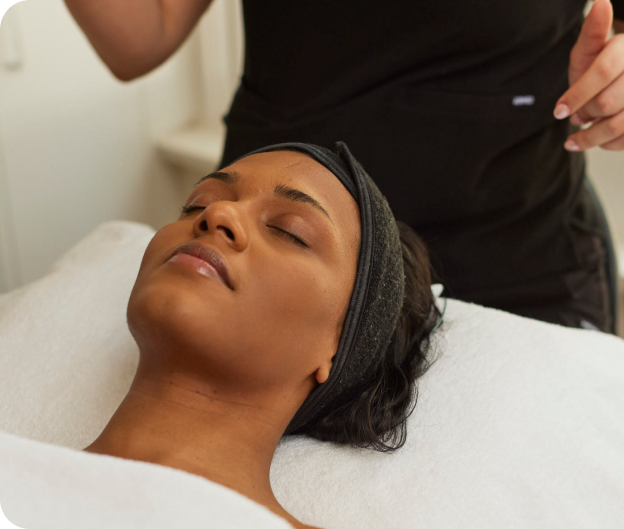
Dr Alice Rudd & Dr Felicity Gould
The vulva, just like any other type of skin on the body, is prone to all types of skin conditions such as eczema, dermatitis, and the effects of common practices we see on the face like over washing and the use of harsh soaps.
Vulva conditions affect women of all ages, from children to the elderly.
As woman go through puberty they develop hormonal changes and the presence of increased hormones can lead to a dysbiosis (microbial imbalance) and change in pH of the vulva. This causes a predisposition to thrush. Vulval thrush is very common condition and is often brought on by a course of antibiotics (frequently prescribed for another medical condition) and sometimes the contraceptive pill. The treatment of thrush usually requires topical treatment and in some cases, oral treatment. Recurrent cases of thrush need to be investigated for associated disorders. Dermatitis is also very common during puberty from exposure to potential allergens. Common allergens include:
- Toilet paper
- Lubricants
- Any medication, either prescribed or over-the-counter
- Perfumed products
- Antifungal creams and pessaries
- Antiseptics
- Nail polish
- Latex condoms
- Semen
In the middle aged years, the more common vulva concern is lichen sclerosus. This is an autoimmune inflammatory condition affecting the vulva, the perianal skin and sometimes other skin sites. It is very itchy and if left untreated can lead to scarring and disfigurement of the vulva. It is important if you have an ongoing vaginal itch to have it checked, as uncontrolled lichen sclerosus can lead to VIN – a type of cancer of the vulva.
Later in life, after the menopause with a loss of oestrogen, the vulva can become dryer and uncomfortable. This used to be known as vaginal atrophy, but is now called genitourinary syndrome of the menopause. This is best treated with the use of topical oestrogen, so long as there are not any contraindications (such as a history of breast cancer)
In most situations, the diagnosis can be made on clinical grounds, but sometimes a biopsy of the vulval or other tests may be required. Often a thorough internal examination of the vagina is required to ensure there are no other contributing pathologies.
- Most patients with a vulval problem have found that it has interfered with their sex life in some way. Sexual arousal may be less easy leading to anxiety, dryness and sometimes painful vaginal spasm.
- Although lubricants can often help in this situation, many patients need help from a physiotherapist’s specialist that deals specifically with the pelvic floor. It can take some time to become comfortable with intercourse again.
Infections (aside from thrush) can affect the vulva, the most common being HPV or genital warts. As always it’s important to be up to date with pap smears to ensure the cervix has not developed any cancerous changes. The advent of the HPV vaccine has been helpful in reducing this risk.
Sometime it is not clear whether a vulval issue requires a gynaecologist or a dermatologist. That is why the Skindepth Vulva Clinic evolved. Most GPs can adequately handle vulva issues, however many times there is more than one condition, or conditions overlapping and it can be difficult to adequately diagnose and manage. Having both a specialist gynaecologist and dermatologist examine the vulva and devise a treatment plan means a more accurate diagnosis, better management and outcome for the patient. Our resident gynecologist Dr Felicity Gould has an affiliation with the Royal Womens Hsopital for women requiring more extensive procedures.
Our next Vulva Clinic is Friday 21st December. Bookings are limited so please get in early to avoid missing out. Please remember a referral from your GP.
